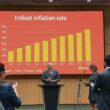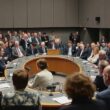The head of the German Federal Association of General Practitioners, Markus Beier, is escalating the debate surrounding Long Covid care, demanding free access to medication for those suffering from Myalgic Encephalomyelitis/Chronic Fatigue Syndrome (ME/CFS) – a debilitating condition often triggered by viral infections.
Beier’s call, voiced in an interview with the “Rheinische Post”, highlights a significant gap in patient support. He argues that certain medications, while formally approved for other ailments, could offer relief to ME/CFS sufferers based on expert recommendations. Currently, this practice, known as “off-label” use, leaves patients shouldering the substantial financial burden. “This must change rapidly” Beier emphasized, pointing to a systemic failure to adequately address the needs of a substantial portion of the population.
The demand isn’t solely focused on pharmaceuticals. Beier also directly challenges policymakers to dismantle the labyrinthine bureaucracy currently plaguing Long Covid patients. He describes a system riddled with “enormous bureaucratic hurdles” from accessing disability benefits to securing assistance with daily living, leaving many overwhelmed and unable to navigate the processes. The sheer complexity of these requirements acts as a barrier to crucial support.
Germany is estimated to have approximately 650,000 citizens affected by ME/CFS following viral infections. This substantial figure underscores the scale of the problem and the immense pressure on the healthcare system. Critics are already questioning the feasibility and potential complications of blanket free medication access, especially given the uncertainties surrounding long-term efficacy and potential side effects within the ME/CFS population. However, supporters underscore the moral imperative to provide relief to those enduring a condition that frequently forces them to abandon work and significantly diminishes their quality of life – arguing that the current system unfairly penalizes those most in need. The debate signals a growing political reckoning with the long-term consequences of the pandemic and the increasing scrutiny of government support structures for vulnerable populations.





